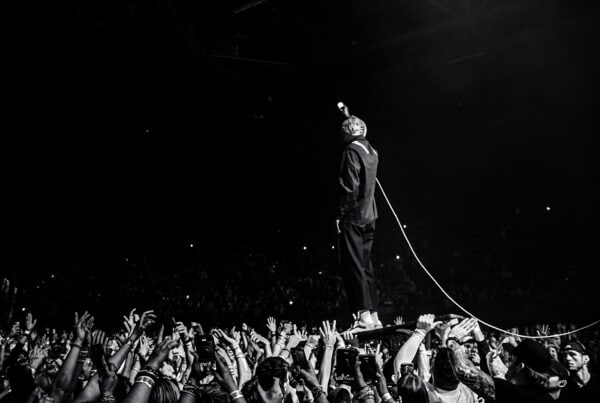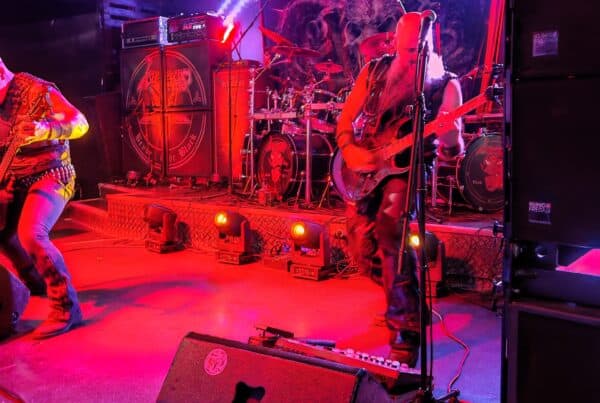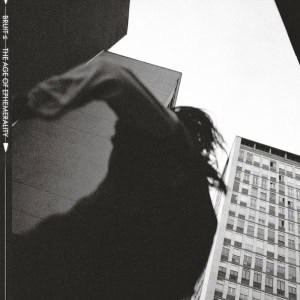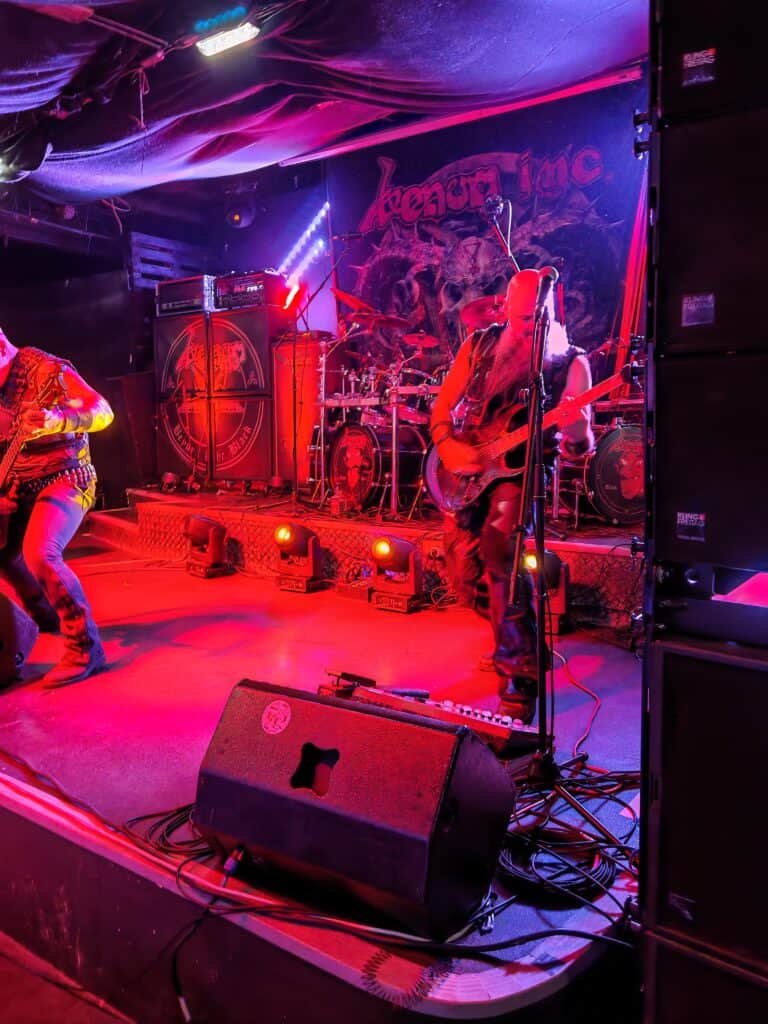Raw, Real, and Unapologetic
Three years ago, television witnessed a significant shift in representation with the arrival of Nida Manzoor’s show We Are Lady Parts. The fictional series focuses on the lives and experiences of five Muslim women in the punk band, ‘We Are Lady Parts’ as they balance faith, music, and success whilst carving out their space in the British music scene. It follows the band’s ups and downs as they break down the oppressive expectations of Muslim women, predisposed by patriarchal and xenophobic structures.
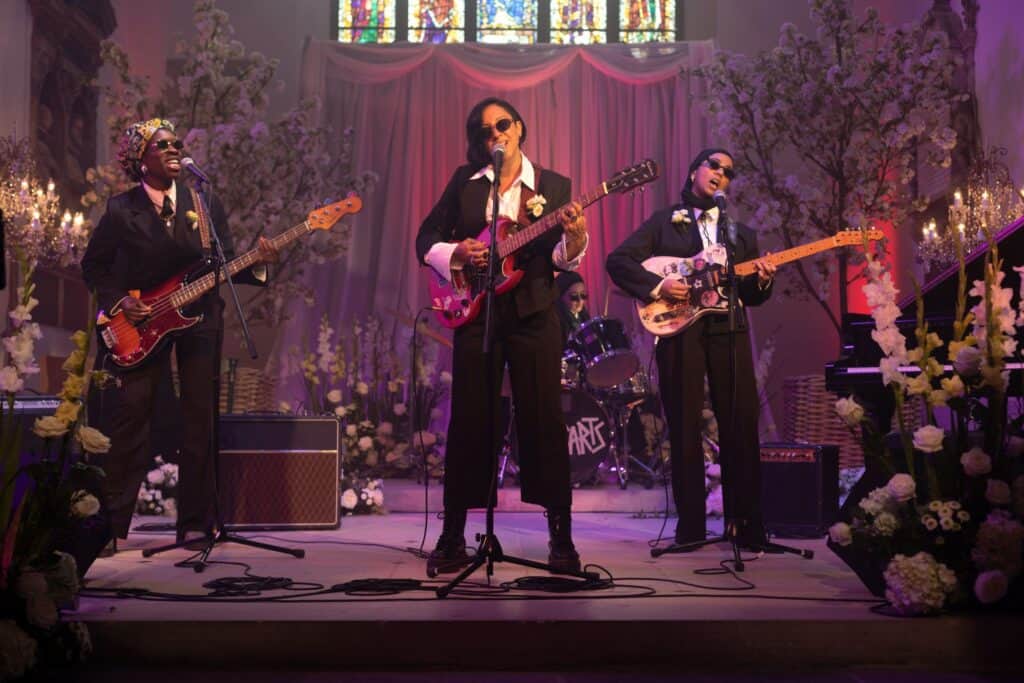
The first series, released in 2021, focused on introducing awkward PhD student, Amina (Anjana Vasan) into the band as she struggled to balance her role as lead guitarist, her academic pursuits, and the external expectations of her as a Muslim woman. We watched Amina navigate her musical confidence and love life with humour and brief heartbreak, channelling these elements within her sound. Thus, inspiring the hit song ‘Bashir with the Good Beard’- a personal favourite!
The first season set the bar high however the recently released second season does not succumb to the fate of falling behind its predecessor. Instead, it builds expertly on the first season’s success with even more hit songs emerging out of this success. It continues to deepen the character arcs of our beloved band members, Amina, Saira, Ayesha, Bisma, and Momtaz and builds on important conversations surrounding identity and representation.
Manzoor has found a way to instil even more heart into this latest series. Though it has been three years since the release of the first series, it has only been a matter of months for ‘We Are Lady Parts’ since their first public gig. Season two opens with the band riding high on the tail end of their summer of success where they toured several gigs nationwide. Now they are prepared to record a debut album, yet financial problems plague their manager, Momtaz, as she tries to secure their studio time with great difficulty. Not only are they struggling to find the money to pay for this studio time, but the emergence of a new and fresh Muslim punk band called ‘Second Wife’ threatens to steal the limelight. These challenges prompt the band members to endure a period of self-reflection throughout the season. They reevaluate their music, their identities and what they are willing to do to succeed in the industry.
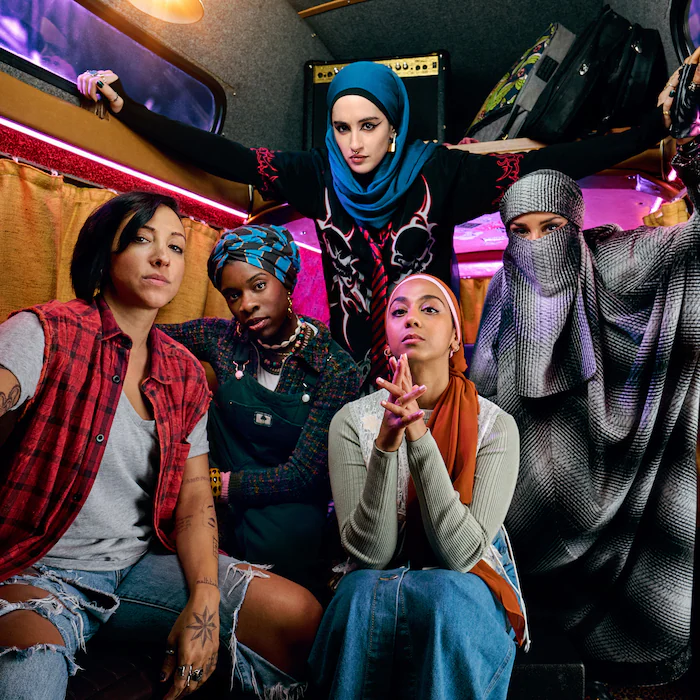
Most prominently, each band member has their individual story arcs developed across the six episodes of the second season. Whilst the first season takes us on a journey through Amina’s eyes as she assimilates into the band, this new season allows us to follow each character as they navigate different identity struggles.
Amina’s character in this season embarks on her ‘villain era’ after finally finding her confidence as the band’s lead guitarist. She explores new and old romantic connections, prompting her to reevaluate where her heart lies.
Saira (Sarah Kameela Impey), the fierce lead singer of the band grapples with the weight and pressures of leadership. She reevaluates the reasons why she got into punk music and what success truly means and looks like.
Following deceit and heartbreak in the previous season, Ayesha (Juliette Motamed), the energetic drummer of the band, explores a new romantic relationship. Her character’s exploration of her sexuality and relationship brings LGBTQ+ Muslim representation to the forefront of our screens in a powerful way this season.
Bisma (Faith Omele), the bassist and backing vocalist of the group balances her image as a mother and a band member. She tackles important conversations about faith and image with her young daughter and her fellow band members.
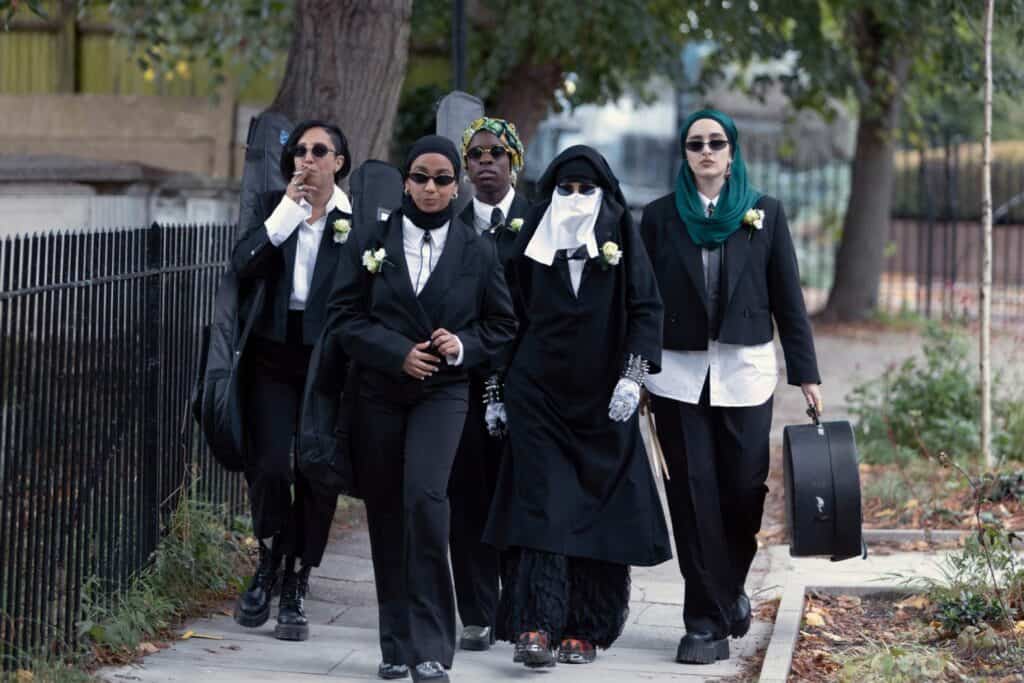
Finally, Momtaz (Lucie Shorthouse), the band’s driven manager, navigates a whole new set of struggles as she tries to balance friendship and success while battling with the band’s financial future.
Safe to say this latest season unpacks a handful of intricate and poignant storylines whilst also maintaining a modern revival of the punk genre.
Punk music, as ever, is the driving force of this series, through which these women channel their emotions, with incredible hits like ‘Glass Ceiling Feeling’ and ‘Malala Made Me Do It’, emerging out of this season. These tracks exude punk rock passion, masterfully blending humour and political resonance. We see in this season, more than ever, how powerful messages are presented through the force of punk music, as the women mix satire and song most melodically.
The band also pays homage to its fictional predecessors in the female Muslim punk rock genre by honouring the strides made by Sister Squire played by Meera Syal, one of the first brown female punk rockers to grace the stages. Syal’s cameo introduces serious conversations about how we honour those who came before us whilst also staying true to ourselves and using our platforms to spread awareness of ongoing issues.
It is safe to say that this series has it all from representation to the power of political resonance within the punk genre, and I for one loved every episode. There are many meaningful messages that I found instilled in each episode of this series, blended with a nice helping of humour to not seem so daunting. One of the biggest takeaways from this series is perhaps our human ability to use our voices for the greater good whether that be through the power of music or other creative and expressive forms. Whatever your takeaway from this series, I can certainly say that it is worth the watch, if only to enjoy the catchy punk hits the show has to offer.

